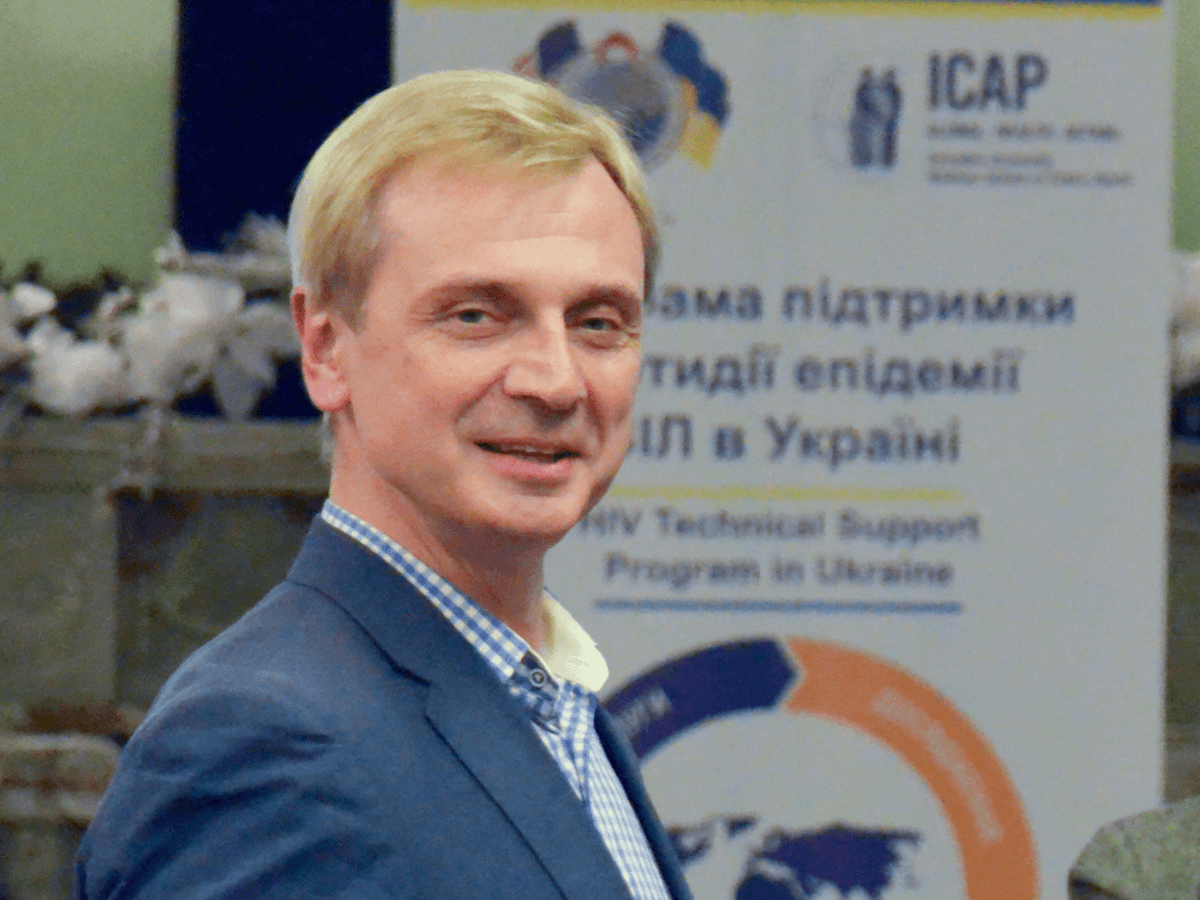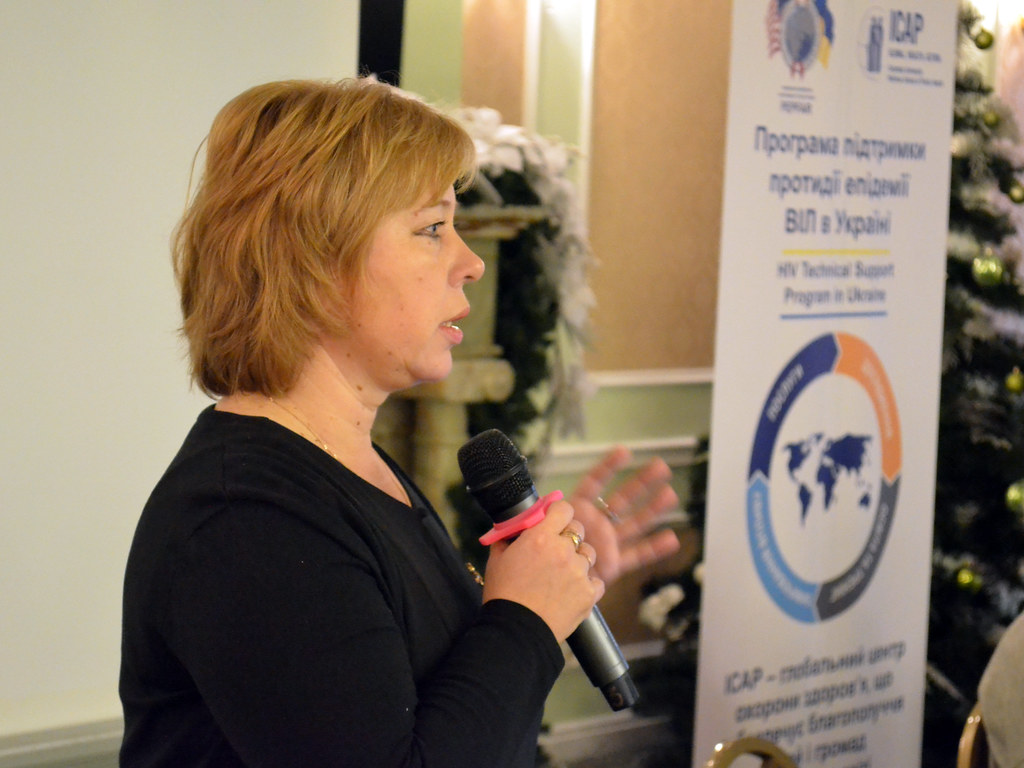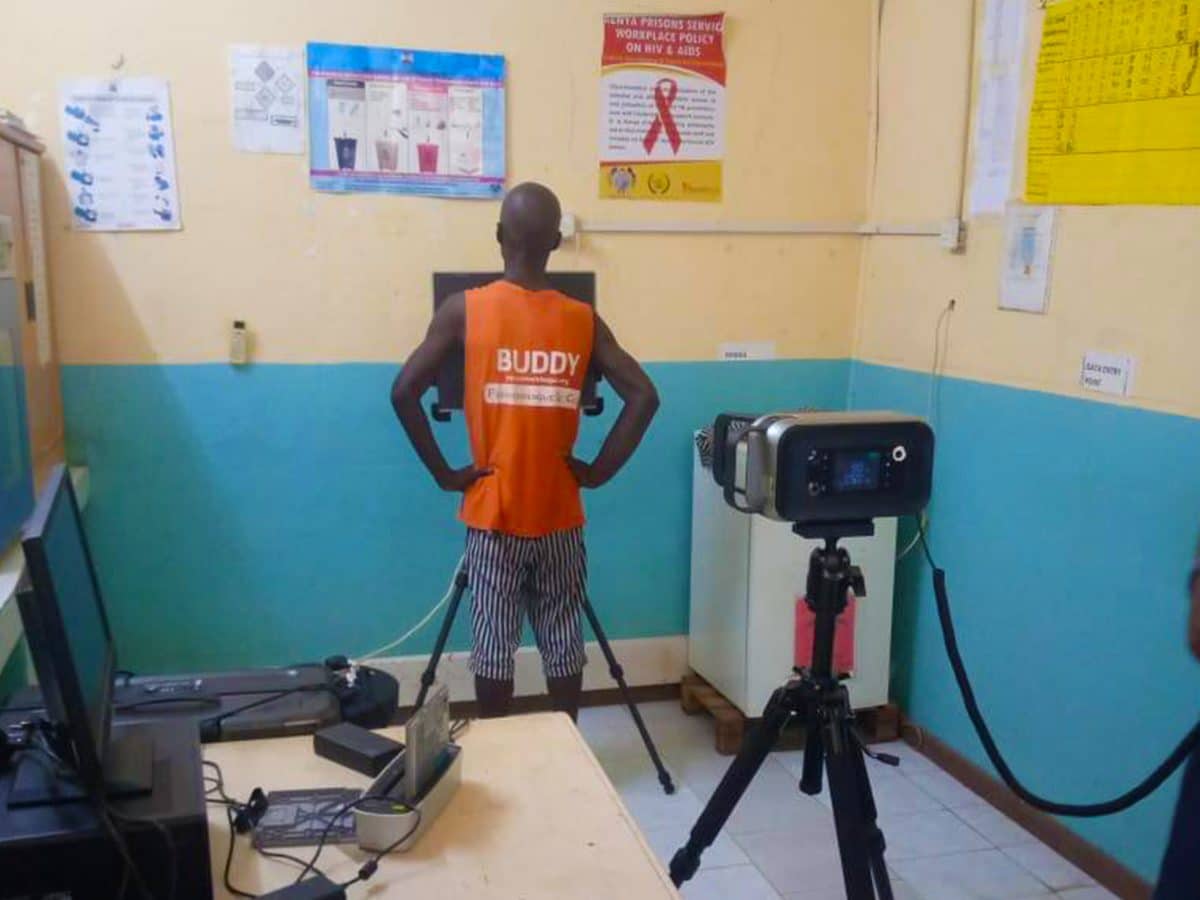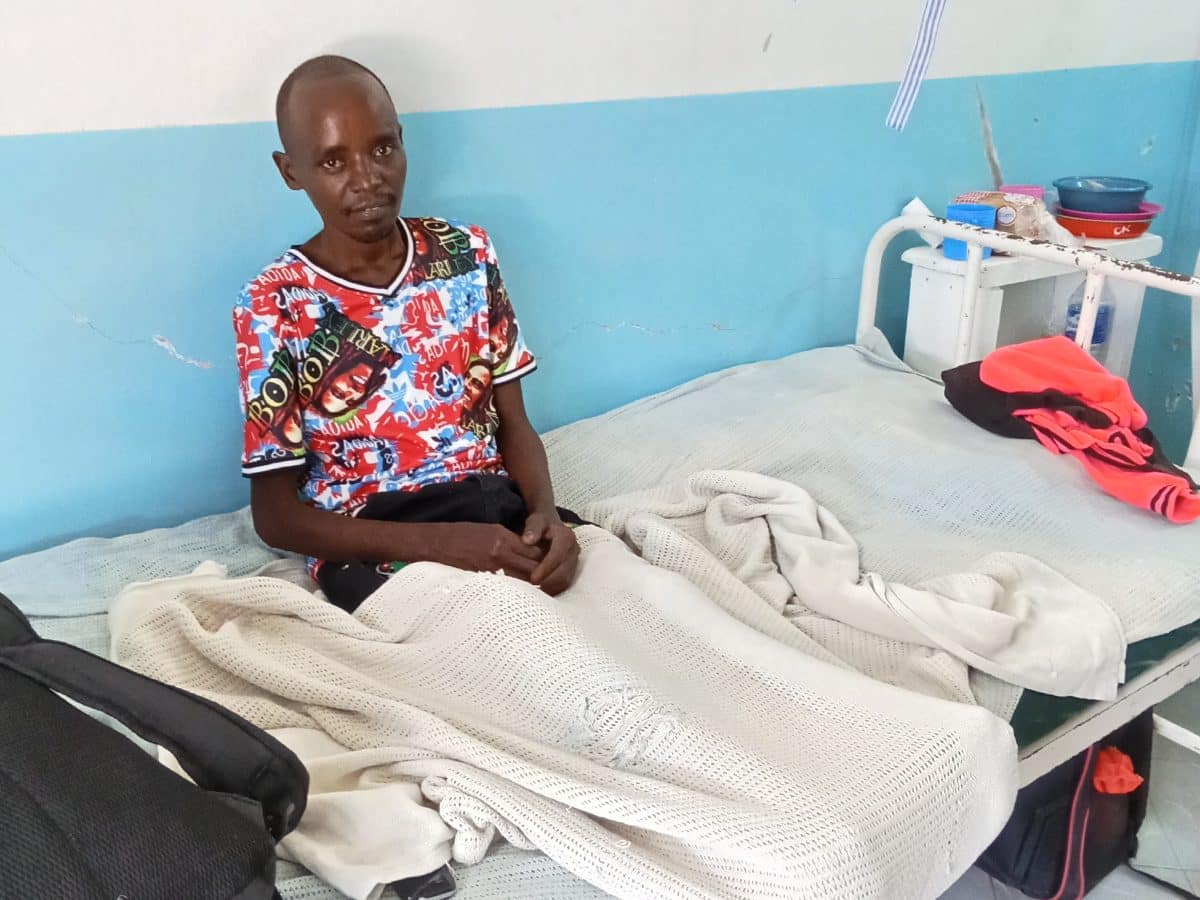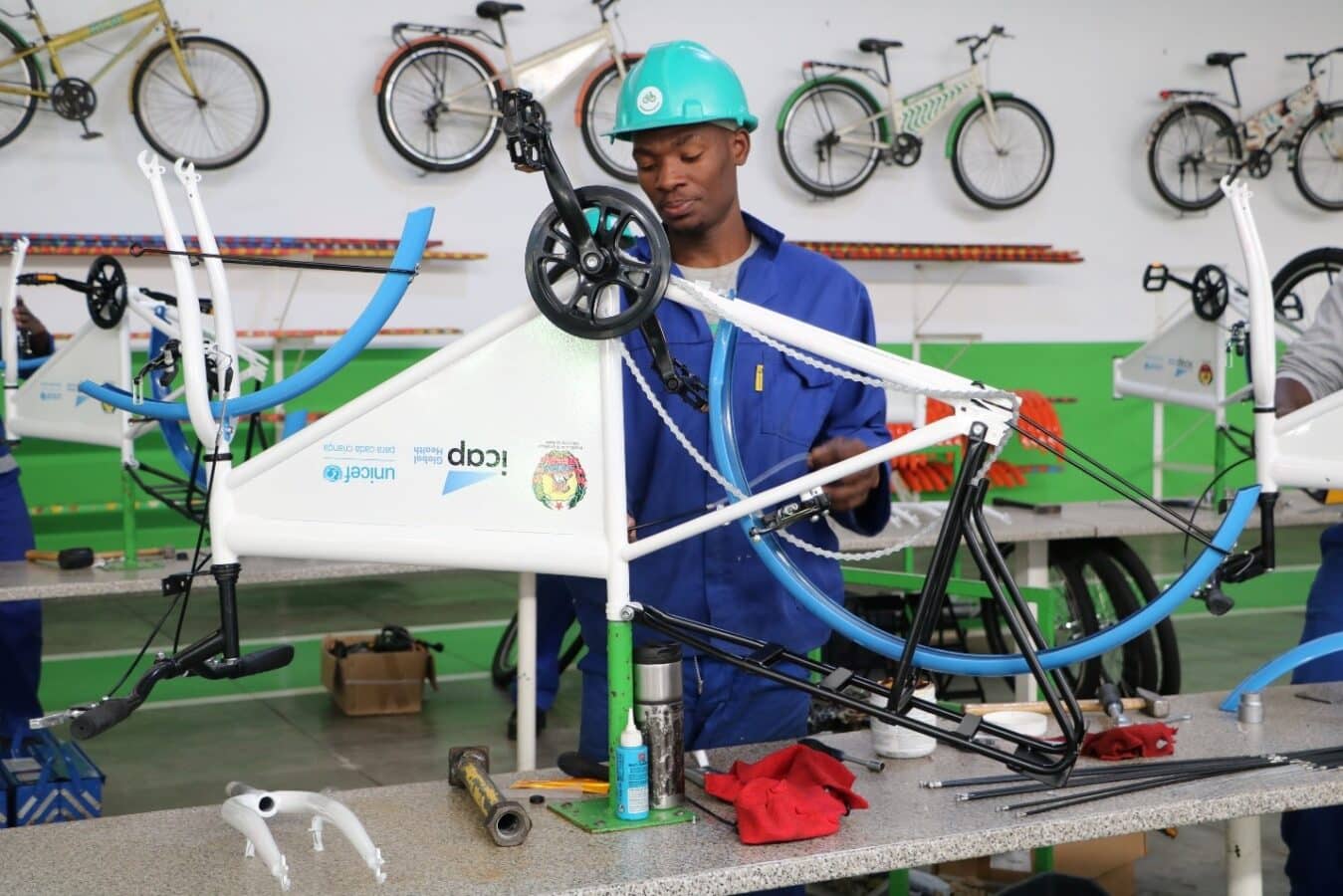In early December, members of 12 newly formed multidisciplinary teams (MDTs) in Ukraine gathered for an ICAP-led training course on quality improvement techniques to accelerate gains in HIV service delivery. These teams, representing the 12 “oblasts” (administrative regions) identified as priority areas by the U.S. President’s Emergency Plan for AIDS Relief (PEPFAR) and the Centers for Disease Control and Prevention (CDC), joined with workers from the Kyiv City Fast Track Initiative and the Ukrainian Public Health Center (PHC) for this practical learning opportunity.
In order to optimize learning for the 75 total attendees, ICAP led two rounds of the three-day training curriculum, which included group work sessions as well as presentations from ICAP, CDC, PHC, and the All-Ukrainian Network of People Living with HIV. All MDTs—consisting of a coordinator, a clinician, a monitoring and evaluation focal point person, and a lay social worker from the network—were asked to arrive with a pre-selected quality challenge from their oblast related to ART initiation. The teams brought lists of relevant data sources and desired outcomes so they could utilize expert guidance and peer feedback during the course to develop relevant strategies and interventions. Teams conducted root cause analyses, drafted problem and aim statements, identified and prioritized change ideas, and developed measurement plans. This work contributed to the development of oblast-wide quality improvement plans that will be implemented with ICAP support over the coming months.
“Rather than providing a pre-set program, ICAP’s QI methodology uses the ‘Plan-Do-Study-Act’ (PDSA) approach to identify specific areas for improvement and iteratively problem solve until the process is optimized or the desired outcome is reached,” said Lauren Walker, MPH, ICAP’s quality improvement project officer. “This is important because each oblast has its own unique challenges— some have higher rates of tuberculosis or intravenous drug use, and other areas experience periods of political instability that disrupt access to programs and treatment—and strategies should be context-driven in order to be successful.”
In Ukraine, ICAP provides technical assistance in quality improvement to the 12 priority oblasts and connects more deeply with a subset of six, offering support to develop and implement new protocols, approaches, and tools that support decentralized, comprehensive HIV care and treatment services. ICAP’s partnership with the Ukrainian Ministry of Health began in 2017.
“These workshops gave the MDTs an opportunity to work together to understand each other and find the best solutions to the problems that they face,” said Igor Semenenko, country representative for ICAP in Ukraine. “This network of support and learning is a powerful tool that will help us optimize our work in order to achieve 90-90-90 by 2020.”


